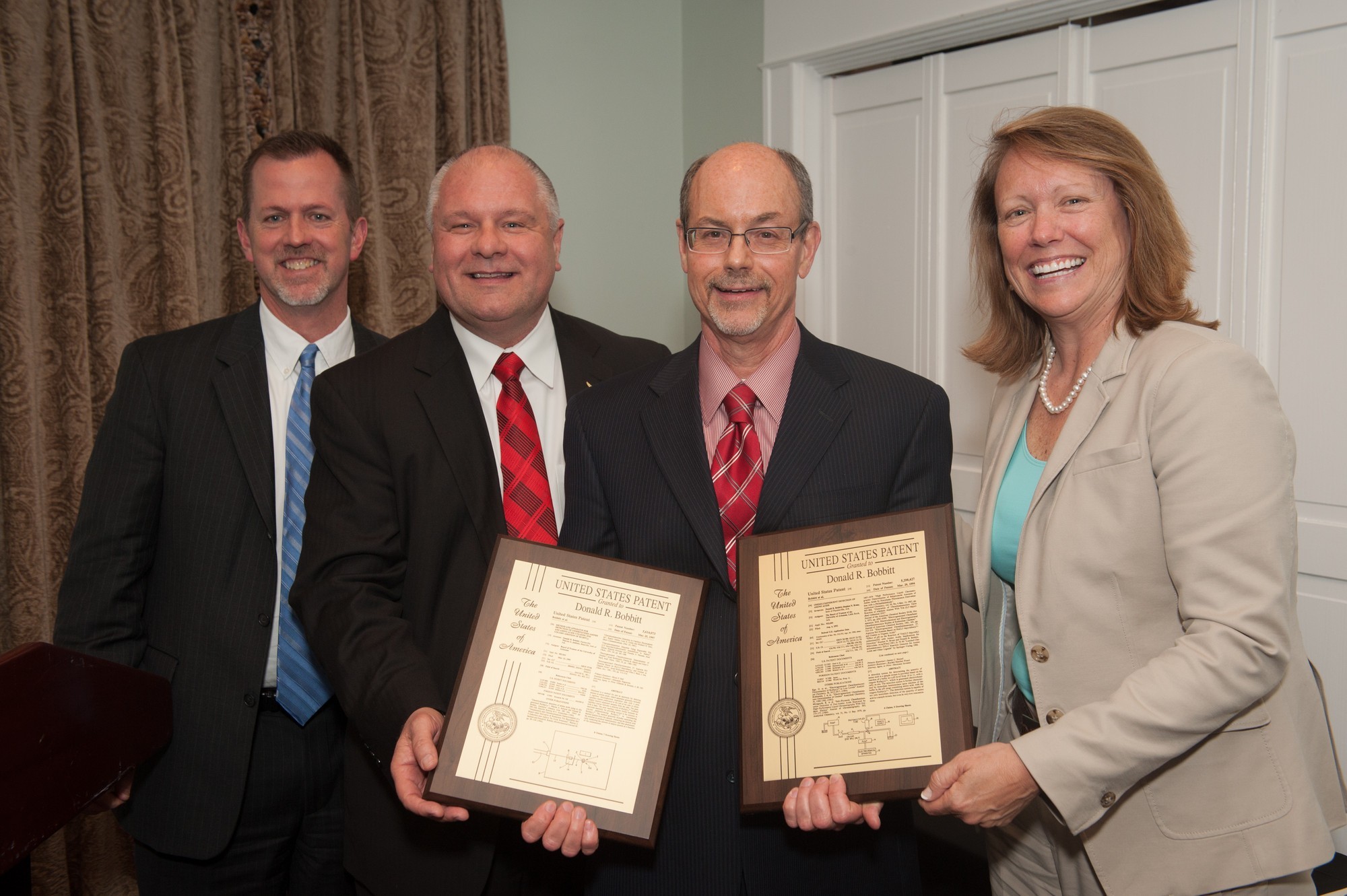
This post was originally published at www.newswire.uark.edu.
FAYETTEVILLE, Ark. — Donald R. Bobbitt, president of the University of Arkansas System, was among those honored on April 23 at the University of Arkansas’ second annual Inventors’ Appreciation Banquet.
The event, held at the Inn at Carnall Hall and hosted by Technology Ventures — the Fayetteville campus technology licensing office — saluted the accomplishments of Bobbitt and two other inventors who have been issued patents during their tenure at the university.
They were initiated into the National Academy of Inventors, a nonprofit organization that accepted the U of A as a charter member in 2012. At the inaugural Inventors’ Appreciation Banquet last spring, the university initiated 16 current and former faculty and staff members into the academy, which endorses investigators at universities and non-profit research institutes who translate their research findings into inventions that benefit society.
“We want to continue to recognize the dedication it takes to those faculty and staff who are active inventors and who act as great partners to Technology Ventures in our effort to commercialize what we hope will be world-changing intellectual property,” said Jeff Amerine, director of the office.
Including Bobbitt, the U of A patent-holders initiated were Alan Mantooth, Distinguished Professor of electrical engineering and Twenty-First Century Chair in Mixed-Signal Integrated Circuit Design and Computer-Aided Design; and Matt McIntosh a professor of chemistry and biochemistry.
Jim Rankin, vice provost for research and economic development, told those gathered that the U of A has institutionalized its support for faculty who are generating intellectual property.
“The university now recognizes intellectual property as part of the research and creative activity metric in faculty promotion and tenure,” Rankin said. “We thank Sharon Gaber, provost and vice chancellor for academic affairs, for her full support of this initiative.”
Bobbitt, a former dean of the J. William Fulbright College of Arts and Sciences, was awarded patents in 1994 and 1997 for discoveries he made as a faculty member in the department of chemistry and biochemistry.
In his remarks to the group, Bobbitt spoke about the importance of innovation and moving discoveries from the lab bench to the marketplace.
“I want to thank everyone in this room for the work that you are doing,” Bobbitt said. “We are advancing the progress of humanity by what we’re doing in science.”
He spoke about the research process and how it doesn’t always produce anticipated results. As an example, Bobbitt shared a story about how, as a faculty member at the U of A, he came up with what he thought was an elegant solution to a problem in the pharmaceutical industry.
“I thought this was such an important problem that I put my best student on it,” he said. “We had the solution diagramed perfectly. But the experiment failed totally and miserably. Clearly, this was exciting because if things don’t work at all, there are some real misconceptions we have about how things work. So I kept at it. The following weekend, the flaw in our approach occurred to me. I went into work that Monday and it was an ‘a-ha’ moment for my student, too. By noon we had it working.”
University officials also recognized Hameed Naseem, professor of electrical engineering, who in 2013 became the first U of A faculty member to be elevated to fellow status by the National Academy of Inventors.
“Dr. Naseem is a terrific inventor and active participant in the research commercialization process,” Gaber said. “As a U of A faculty member over the last 28 years, he has been responsible for eight issued patents, six issued intellectual property licenses and one startup venture.
“Election to NAI fellow status is a high professional distinction accorded to academic inventors who have demonstrated a highly prolific spirit of innovation in creating or facilitating outstanding inventions that have made a tangible impact on quality of life, economic development and the welfare of society,” she said.